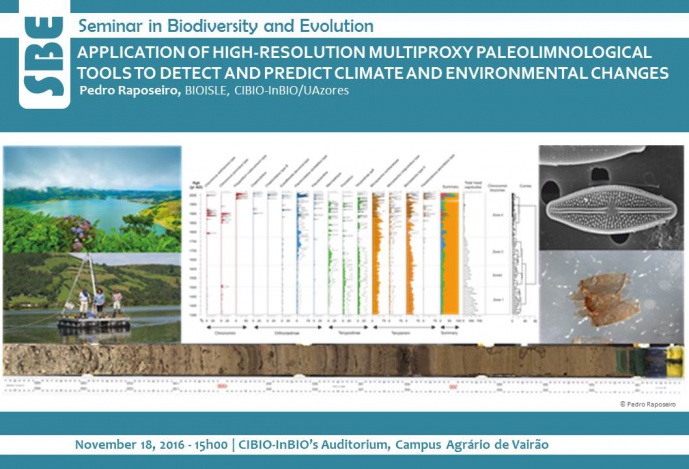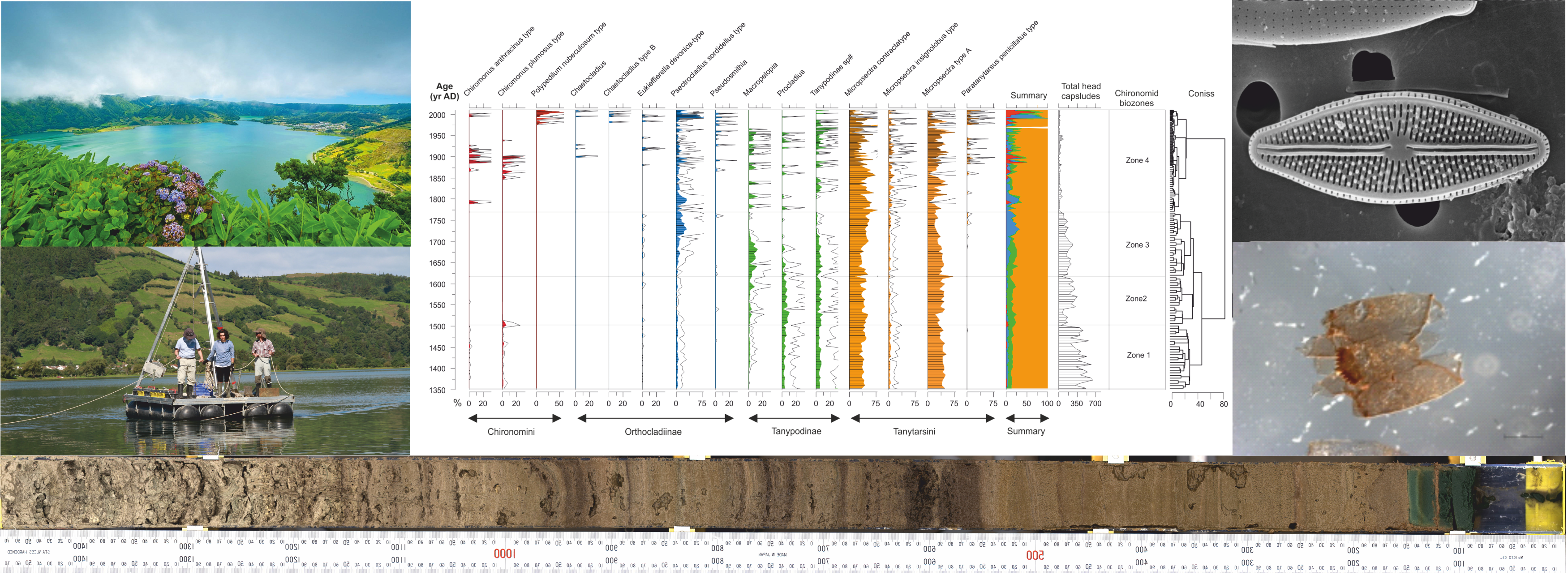APPLICATION OF HIGH-RESOLUTION MULTIPROXY PALEOLIMNOLOGICAL TOOLS TO DETECT AND PREDICT CLIMATE AND ENVIRONMENTAL CHANGES


The Azores is particularly rich in freshwater ecosystems and hosts 88 lakes. Lakes are well known “sentinels of change”, providing valuable insight into climate change effects and mechanisms. The lacustrine sediment records constitute accurate archives of past environmental change. The characterization of the lacustrine sediments using several techniques (multiproxy approach) is possible to identify long-term changes in the condition of lakes and correlate changing conditions to environmental and climate drivers over a range of temporal scales, and hence enabling the definition of the historic range of variability. This methodology is also used to identify the initial point of change when lake conditions first deviated from natural ranges of variability. These deviations can reveal the responsiveness of the lake to human impacts. Therefore, tracking environmental changes in sedimentary records can reveal pre-impact conditions, trajectories of change, and identify signs of recovery.
This study aims characterize the sediment records of selected Azorean lakes and distinguish between signals of anthropogenic and climate changes over the past 1000 years. The main scientific questions under investigation are: i) what kind of changes occurred in the Azorean lakes on the last 1000 years?; ii) when started and how evolved through time the human impact on the Azorean lakes? iii) what was the composition and abundance of the lake biological communities before the human impact?
To answer these questions, two approaches will be combined: (i) multiproxy characterization of sediment records from selected lakes supported by historical instrumental data and (ii) development of inference models based on the relation between biological assemblages in surface sediments and present environmental conditions.
Pedro Raposeiro is a FCT Pos-Doc (CIBIO-InBIO) working in the University of Azores. Currently research focus on the historical anthropogenic impacts on Island Lake ecosystems, using fossilized chironomids in sediments of lakes to reconstruct past climate and environmental changes .He is working under the supervision of Dra. Ana Cristina Costa (CIBIO-InBIO-Açores/UAç), and Dr. Santiago Giralt (CSIC).
[Group Leader: António Frias Martins, Biodiversity and Islands]
Image credits: Pedro Raposeiro